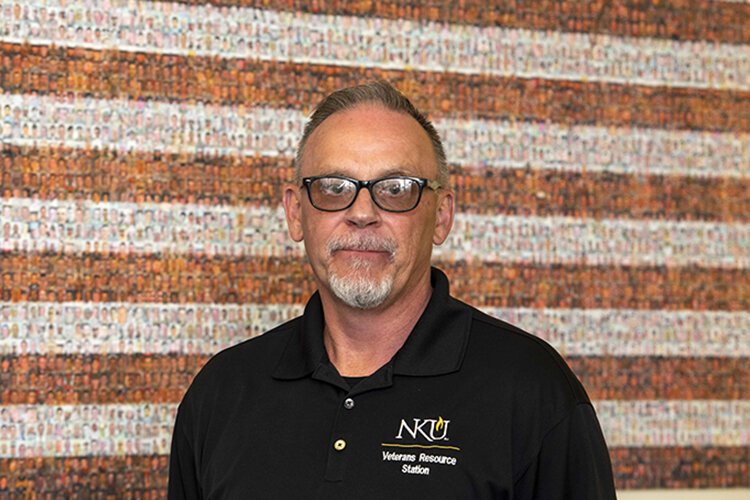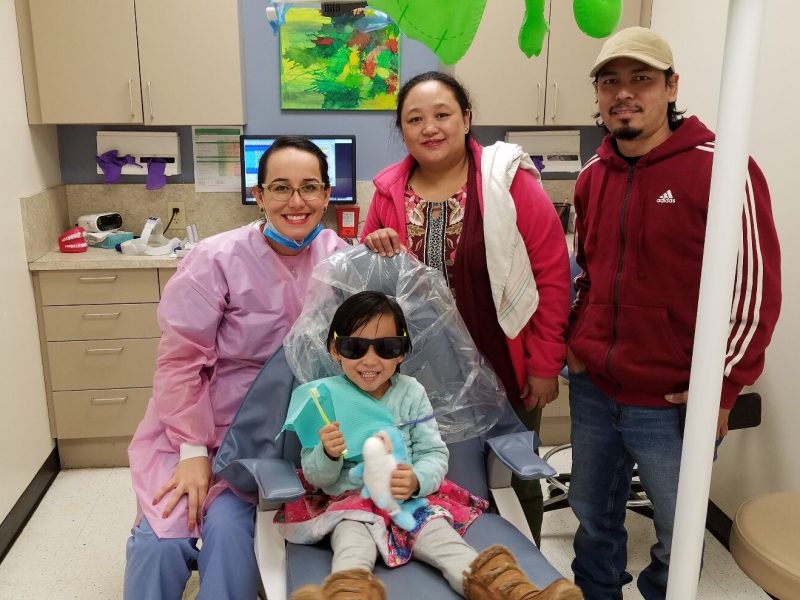Vets welcomed to ease transition to civilian life and find work in a tight labor market
With an economy booming in the fields of aviation, high-tech, and logistics, Northern Kentucky would benefit from an infusion of military experience.
Veterans are not simply welcome in Northern Kentucky. They are actively encouraged to move here to make their homes as they transition from military to civilian life.
In its ninth year, the Veterans Resource Station at Northern Kentucky University is a one-stop shop that is helping close to 700 veterans succeed in academic life.
Besides offering meetings with the Veterans Administration staff and others to go over benefits and get career advice, the station gives veterans a sense of community within NKU, says coordinator Rusty Mardis.
Its “At Ease Lounge” is more than a place to fill out forms. It’s a “place to chill,” Mardis says, to enjoy a cup of coffee and a breakfast burrito with fellow vets.
Ultimately, Mardis wants to broaden that mission to the community at large. Meanwhile, he is excited about a new effort by regional leaders to roll out the red carpet to veterans.
The new “Veterans Welcome in Northern Kentucky” website is a partnership with Northern Kentucky Tri-ED, the economic development accelerator, and the NKY Chamber of Commerce.
With an economy booming in the fields of aviation, high-tech, and logistics, Northern Kentucky would benefit from an infusion of military know-how. Some 200,000 people leave the military each year, and Kentucky is expected to welcome 20,000, Mardis says.
And Tri-ED compiled statistics showing upwards of 56,000 in Kentucky “serve in one capacity or another, either active duty, National Guard or civilian with (Department of Defense) clearance. It’s a prime population of individuals that we want and need in our community,” says Nancy Spivey, NKY Chamber’s vice president of talent strategies.
“Northern Kentucky really recognizes that we need to grow our population to be able to address the workforce needs,” says Kimberly Rossetti, Tri-ED’s vice president of economic development.
“We understand (veterans) have a lot of skills, especially in some of our high-demand areas, specifically around aerospace and aviation,” Spivey says. “There’s also positions in manufacturing that align with the skill sets that a number of those individuals have. Medical and health care is another area of specialty within the military.”
Besides aviation, Northern Kentucky has high-demand sectors such as advanced manufacturing and logistics. Companies such as Mazak already have “very robust outreach programs to recruit veterans,” Rossetti says.
The “Welcome Veterans” website went live three weeks ago. A goal is to attract a “very educated and dedicated workforce into the region,” Rossetti says, but also to connect them to workforce resources and tell them what it’s like to live in Northern Kentucky.
“It’s not just about the workforce side of finding a job, but what is it like to actually live here in Northern Kentucky and be part of the community, the Cincinnati region. So, those resources are included on the website as well, to help them navigate that whole system of relocating,” she says.
The web page’s video touts our quality of life, fun things to do, sporting events, festivals, restaurants, and culture.
Northern Kentucky boasts a lower cost of living compared to other major cities, officials say. “We offer a lot of different ranges in terms of housing, so you can be in the urban core, you can be in a more suburban setting, and you can even be in a more rural setting but still have access to those jobs,” Rossetti says.
At a May veterans career fair at the Kentucky Career Center in Covington, the companies recruiting new employees outnumbered the job seekers.
There were 48 industry leaders in information technology, construction, health care, transportation and logistics, and advanced manufacturing. A total of 39 job seekers showed up, and that included non-veterans.
“You know, veterans could fit into any number of jobs and companies, but you know CVG airport is in serious need of aircraft mechanics and airline type of positions, and we think that veterans are particularly well suited for those types of positions,” says Correy Eimer, who operates the Kentucky Career Center. “And since we have an international airport here, I think that would be great to attract more veterans to this area.”
Eimer salutes the effort to attract veterans to the Northern Kentucky region.
“Absolutely. It would be a good thing for our region, especially considering all of the aviation jobs that are available up here.”
Actually, most veterans don’t make a plan for post-military life, Mardis says, so outreach and information on how to transition to civilian life here would advance the idea of making Northern Kentucky a hub for veterans.
The Veterans Resource Station will be the point of contact for any military, veteran and family questions, and connections to resources.
The transition to civilian life can be complicated, and more difficult than many expect. The website military-transition.org says 76% of veterans told them their transition was stressful. And 52% thought it was confusing.
“We come with what I call the ‘Captain Marvel/Captain America complex.’ We come with this high confidence. We’ve been through a lot; we accomplished a lot while we’re in the military. We see a lot of success. And we think we’re going to have that same success in the civilian world. And when we get out, we don’t have that immediate success or that immediate accomplishment,” says Mardis, a 24-year military veteran, his last 12 as a commissioned officer.
“It really puts the hit on your psyche and can cause a lot of issues and problems.”
The years after his tour in Afghanistan and then his retirement were hard, Mardis says, leading to depression and thoughts of suicide. His friends “saved him,” he says, and eventually it got better with an increased sense of purpose.
“You have this huge camaraderie when you’re in the military. You know, we are called ‘battle buddies,’ right?” Mardis says.
But when you get out, “it’s like you’re on your own.”
“You lose that purpose, that pride, that sense of accomplishment … as soon as you get out because now it’s gone, man, you’ve got to figure it out. Where do you get that support system? Well, that’s what we want to do. We want to be that support system, to be that coach, that mentor, whatever they need to get them connected to the right resources to get them through that difficult transitional piece,” Mardis says.
His mission down the road is to create a community “one-stop shop” for veterans. Meanwhile, the Veterans Resource Station carries on at NKU.
And the goal of the new website is to reach veterans “around the country and to military posts around the world,” Mardis says.
By rolling out the welcome mat, he says, military people making the transition to civilian life will know Northern Kentucky is a vibrant job market, and a hospitable one to boot.

















